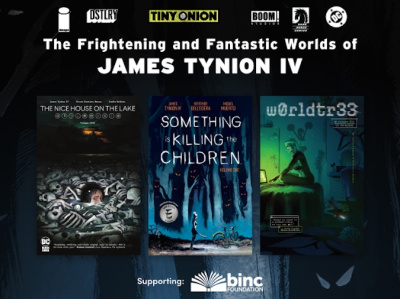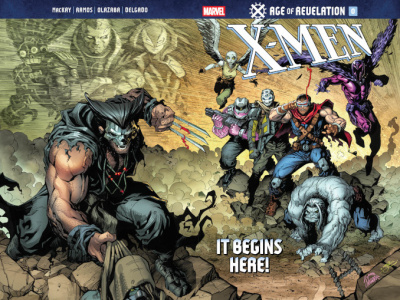Now Comics' Tony Caputo saw the comments by Jim Brocius of Cosmic Comics in Las Vegas (see 'Jim Brocius of Cosmic Comics on Marvel Licensing Its Comics') on his essay on Marvel licensing out its comics (see 'Now Comics' Tony Caputo Asks What If?'), and has this response:
In response to my What If...? essay, Jim Brocius' believes the licensing theory does not 'hold water,' because (1) 'the retailers are the ones floating the publishing boat,' (2) not all Marvel characters are licensable, and (3) legal review of every deal would drain away publishing profits.
Although it would be nice to think that the retailers are 'floating the publishing boat,' that is completely inaccurate. I just received a note from Diamond Comic Distributors indicating that they're accepting solicitations for October 2005 shipping. I also recently received a query for the products shipping next spring, for the spring 2006 Diamond Book Distributors Catalog. Therefore, a concentrated production timeline could be six months prior, with a more comfortable date being about nine months to a year. There is a substantial out-of-pocket investment per product up to a year prior to receiving any income from wholesale revenues. Therefore, retailers do not 'float the publishing boat.' The risk is on the publisher, especially if product ships on consignment, as with Diamond Book Distributor's new contract, which engulfs the direct market allotment, too.
How many characters have licensing potential? My answer to that is all of them. I can give you a list of a dozen small publishers that I correspond with (because of my how-to book), that wouldn't mind the opportunity to publish a comic book that sold 20,000, or even 10,000 copies per month, let alone a Marvel Comic. They have lower overhead and can afford to produce products with lower numbers, while Marvel Comics cannot. Therefore, you would see creators bringing characters that haven't had their own title in years, or even decades, back to life. Just as Speed Racer made the original Now Comics back in 1987 (and in return, Now Comics made Speed Racer a rich intellectual property), this could potentially do the same for many companies and Marvel IP. Every company would be a publishing licensee extension of Marvel Enterprises, like how Bill Gates uses actual Microsoft Windows consumers as beta testers.
The 'massive influx of lawyers' isn't a realistic assessment. I'm sure every deal with every creator on every Marvel comic book today requires involvement with the legal department. In licensing, there would be a licensing agreement that would require some legal review, but it'll be a standard template. The numbers from my original What If...? essay do include a specialty team of reviewers whose main objective is review, acceptance and/or rejection of all plots, stories, creative teams, artwork, color, cover, marketing pieces and messages, etc. The billable hours to the legal department would be less, when production responsibility relinquishes contractual obligations and negotiations for creative talent to the licensee.
Incidentally, this is not 'The Caputo Plan.' My years as a business analysis and consultant, on top of having been involved in six entrepreneurial adventures have sharpened my foresight and understanding of investor objectives and strategy. I'm sure this is an analysis that is already in the hands of Marvel board members (because I'm not that smart). I'm just enlightening the industry that this may be something that could happen and change the landscape. That's all.
The opinions expressed in this Talk Back article are solely those of the writer, and do not necessarily reflect the views of the editorial staff of ICv2.com.







